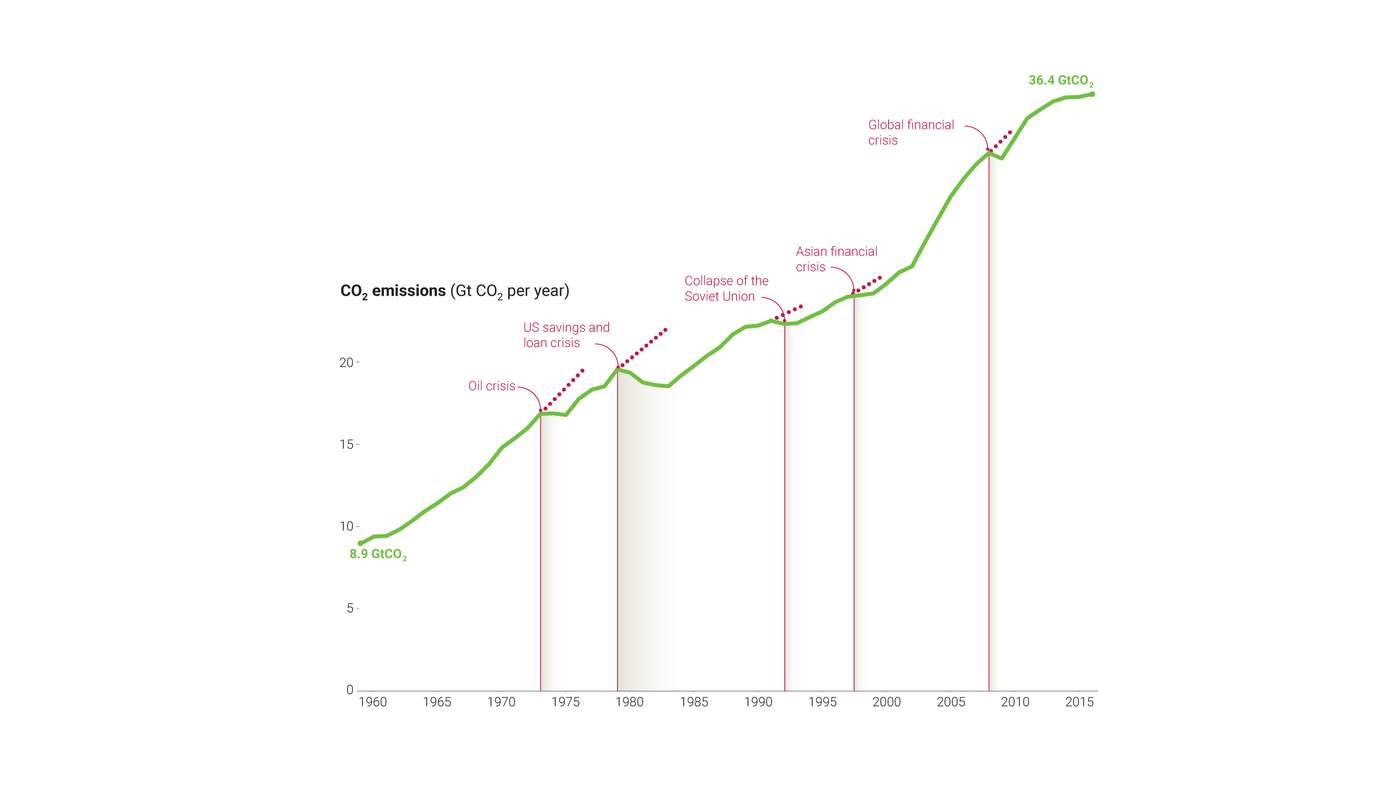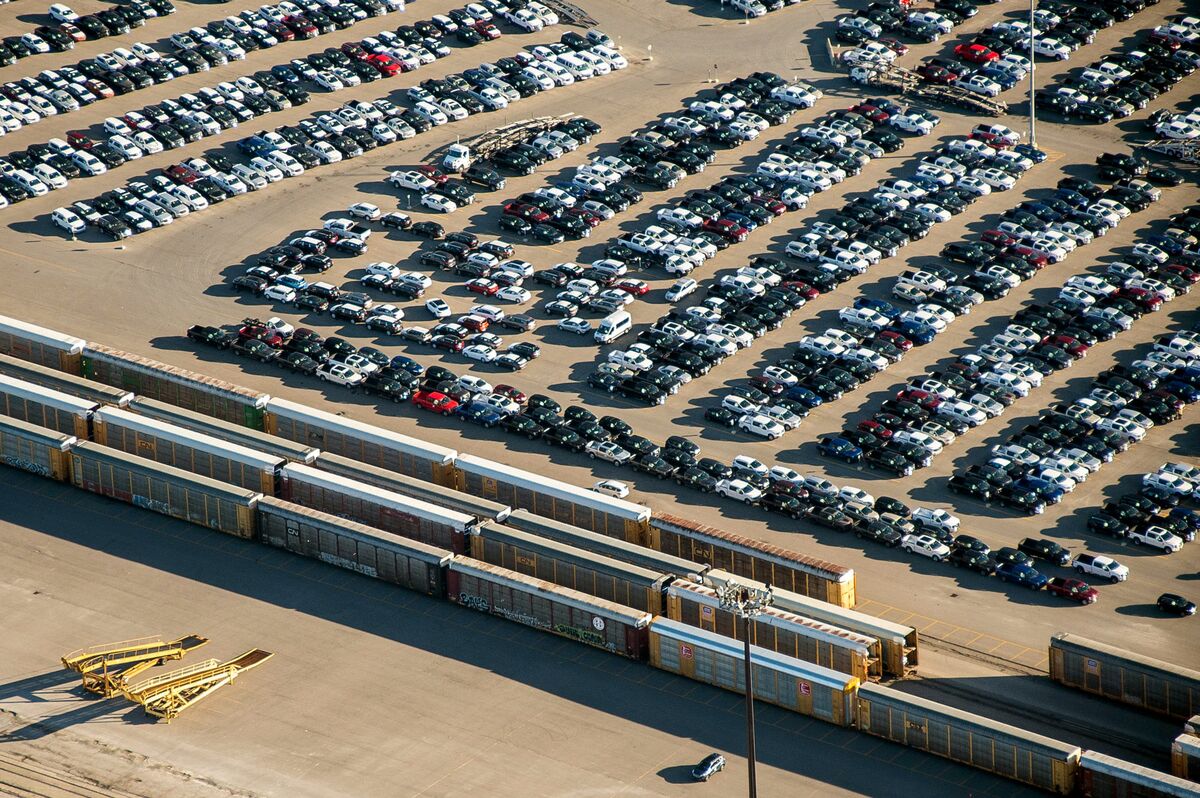The Great Decoupling And Its Impact On Geopolitics

Table of Contents
Economic Impacts of the Great Decoupling
The Great Decoupling is fundamentally altering the global economy, triggering a significant shift away from the hyper-globalization of the past few decades. This restructuring has profound implications for businesses, consumers, and international cooperation.
Restructuring Global Supply Chains
The traditional model of globally integrated supply chains, characterized by long, complex networks spanning multiple countries, is undergoing a dramatic transformation. This shift is driven by a desire for increased supply chain resilience and reduced dependence on specific nations, particularly in the context of geopolitical tensions.
- Increased costs for businesses: Regionalization and diversification efforts inevitably lead to higher transportation costs, increased complexity in logistics, and potentially higher production costs.
- Regionalization efforts by countries: Many nations are actively pursuing strategies to bring manufacturing and supply chain activities closer to home – a process known as nearshoring and friend-shoring.
- The rise of "friend-shoring": Countries are prioritizing partnerships with like-minded nations for critical supply chains, emphasizing political and security alignment alongside economic considerations.
- Challenges to global efficiency: The shift away from globally optimized supply chains leads to some loss of efficiency and economies of scale. Keywords: Supply Chain Resilience, Regionalization, Friend-Shoring, Nearshoring, Global Supply Chains.
Trade Wars and Protectionism
The Great Decoupling is characterized by a resurgence of protectionist policies and escalating trade wars. These actions aim to protect domestic industries and reduce reliance on foreign suppliers, but often come at a significant economic cost.
- Examples of specific trade wars (e.g., US-China trade war): The US-China trade war, marked by reciprocal tariffs and trade restrictions, significantly impacted global trade flows and disrupted supply chains. Similar tensions exist between other nations.
- Impact on specific industries: Industries heavily reliant on global supply chains, such as electronics and automobiles, have been particularly affected by trade wars and protectionist measures.
- Consequences for consumer prices: Tariffs and trade restrictions often translate into higher prices for consumers, reducing purchasing power and impacting overall economic well-being.
- Effects on international cooperation: Trade wars erode trust and cooperation among nations, hindering the effectiveness of international trade organizations like the WTO. Keywords: Trade Protectionism, Tariffs, Trade Wars, Bilateral Trade Agreements, WTO.
The Rise of Regional Economic Blocs
The Great Decoupling is fostering the rise of competing regional economic blocs, as nations seek to strengthen economic ties within their respective spheres of influence. This trend challenges the long-standing notion of a singular, globally integrated economy.
- Examples of regional blocs (e.g., EU, ASEAN, RCEP): The European Union, the Association of Southeast Asian Nations (ASEAN), and the Regional Comprehensive Economic Partnership (RCEP) are examples of significant regional economic blocs driving integration within their respective regions.
- Potential for increased regional integration: Regional blocs can facilitate deeper economic integration, promoting trade, investment, and technological collaboration within their member states.
- Challenges of bloc-to-bloc cooperation: The emergence of competing blocs presents challenges for global economic coordination and cooperation, potentially leading to fragmentation and reduced global efficiency. Keywords: Regional Economic Integration, Economic Blocs, Free Trade Agreements, Regional Trade Pacts.
Geopolitical Consequences of the Great Decoupling
The economic shifts associated with the Great Decoupling are inextricably linked to significant geopolitical consequences, altering alliances, intensifying rivalries, and impacting international cooperation.
Shifting Alliances and Geopolitical Rivalries
The Great Decoupling is accelerating the realignment of global power dynamics, leading to the strengthening of existing alliances and the emergence of new geopolitical rivalries.
- The strengthening of alliances like NATO and Quad: Alliances like NATO and the Quadrilateral Security Dialogue (Quad) are gaining increased strategic importance as nations seek to counter perceived threats and bolster security cooperation.
- The emergence of new geopolitical rivalries: The decoupling process is sharpening existing geopolitical rivalries, particularly between the US and China, influencing the dynamics of global power and shaping international relations.
- The impact on international organizations: The effectiveness of multilateral institutions like the United Nations is challenged as nations prioritize national interests over global cooperation. Keywords: Geopolitical Rivalry, International Alliances, Power Dynamics, Geopolitical Competition.
The Impact on International Cooperation
The Great Decoupling poses significant challenges to international cooperation and multilateralism, making it more difficult to address pressing global issues.
- Reduced effectiveness of international organizations: The prioritization of national interests often hinders the effectiveness of international organizations in addressing global challenges collaboratively.
- Difficulties in addressing global challenges (climate change, pandemics): The fragmented nature of the decoupling process makes it harder to achieve global consensus and coordinated action on critical issues such as climate change and pandemic preparedness.
- The rise of unilateralism: Nations are increasingly resorting to unilateral actions, undermining multilateralism and complicating efforts to address shared challenges. Keywords: Multilateralism, International Cooperation, Global Governance, Unilateralism.
Technological Competition and National Security
Technological decoupling is a key feature of the Great Decoupling, with profound implications for national security and global stability.
- Competition in key technologies (e.g., semiconductors, AI): Competition for dominance in critical technologies, such as semiconductors and artificial intelligence, is intensifying, driving national strategies to secure technological advantage.
- Concerns about technology transfer and intellectual property: Concerns over technology transfer and the protection of intellectual property are central to the tensions surrounding technological decoupling.
- The impact on military capabilities: The race for technological superiority is directly impacting military capabilities, leading to an arms race in advanced technologies. Keywords: Technological decoupling, National Security, Technology Transfer, Intellectual Property, Cybersecurity.
Conclusion: Navigating the Uncertainties of the Great Decoupling
The Great Decoupling is reshaping the global economic and geopolitical landscape in profound ways. The economic impacts, from supply chain restructuring to trade wars and the rise of regional blocs, are intertwined with significant geopolitical consequences, affecting alliances, international cooperation, and technological competition. The long-term implications remain uncertain, demanding careful navigation and strategic adaptation. Understanding the nuances of this global shift is crucial for businesses, governments, and individuals alike. We must actively engage in fostering greater understanding and finding solutions to navigate the challenges posed by the Great Decoupling. Continue your research into the Great Decoupling and its impact on your specific region or industry. Share this article and join the conversation in the comments below. Understanding the Great Decoupling and its geopolitical ramifications is more critical than ever.

Featured Posts
-
 Canadas Trade Deficit Narrows 506 Million In Latest Figures
May 08, 2025
Canadas Trade Deficit Narrows 506 Million In Latest Figures
May 08, 2025 -
 Inter Milan Goalkeeper Yann Sommer Suffers Thumb Injury
May 08, 2025
Inter Milan Goalkeeper Yann Sommer Suffers Thumb Injury
May 08, 2025 -
 Ultimate Nba Playoffs Triple Doubles Quiz How Well Do You Know The Stats
May 08, 2025
Ultimate Nba Playoffs Triple Doubles Quiz How Well Do You Know The Stats
May 08, 2025 -
 Lotto Jackpot Numbers Saturday April 12th Winning Numbers Revealed
May 08, 2025
Lotto Jackpot Numbers Saturday April 12th Winning Numbers Revealed
May 08, 2025 -
 Bitcoin Madenciligi Artik Karli Bir Is Mi Gelecegi Ne
May 08, 2025
Bitcoin Madenciligi Artik Karli Bir Is Mi Gelecegi Ne
May 08, 2025
